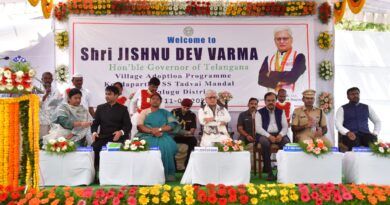Pegasus Snooping Case: N. Ram, Satish Kumar Move Supreme Court Seeking Inquiry by a Sitting or Retired Judge of The Supreme Court
(Judicial Quest News Network)
Director of Hindu Group of publications N Ram and founder of Asianet Sashi Kumar two prominent journalists on Tuesday July 27, moved the Supreme Court seeking a probe headed by a retired or sitting judge into the sensational Pegasus snooping allegations that have triggered a public row and rocked the Monsson session of the parliament.
The petition sought the directions to be issued to the government of India to disclose if the government of India or any of its agencies have obtained license for Pegasus spyware or used it either directly or indirectly to conduct surveillance as alleged.
The petitioners sub its that the Global investigation involving several leading publications around the world (including inter alia the Guardian (UK), Le Monde and Radio France (France), the Washington Post and Frontline (USA), Haaretz (Israel) and the Wire (India)has revealed that more than 142 (One hundred-forty two) persons including Journalists, Lawyers, Government Ministers, opposition politicians, constitutional functionaries and civil society activists from India have been identified as potential targets for surveillance using Pegasus software.
The petitioners pointed out that the government has not categorically ruled out obtaining Pegasus license to conduct surveillance in their response, and have taken no steps to ensure a credible and independent investigation into these extremely serious allegations.
This is the third petition filed in the Apex Court seeking a probe into the investigative reports published by 17 global media outlets that over 300 verified numbers – including those belonging to two ministers, over 40 journalists, three opposition leaders and one sitting judge, besides scores of business persons and activists in India – could have been possible targets of Israel spyware Pegasus.
The plea placed reliance on the news reports by the wire and other international publications to raise the following issues.
-Has the targeted surveillance been conducted on journalists’ doctors, lawyers, opposition politicians’ ministers, constitutional functionaries and civil society activists by illegally hacking into their phones using the Pegasus spyware?
-What are the implications of such a hack? Do they represent an attempt by agencies and organizations to muzzle and chill the exercise of free speech and expression of dissent in India?
The Pegasus hack is a direct attack on communicational, intellectual and informational privacy and critically endangers the meaningful exercise of privacy in these contexts. The right to privacy extends to use and control over one’s mobile phone/ electronic device and any interception by means of hacking/tapping is an infraction of Article 21. Further, the use of the Pegasus spyware to conduct surveillance represents a grossly disproportionate invasion of the right to privacy.
Legal regime of Surveillance Under section 5(2) of the Telegraph Act says that surveillance/interception is justified only in cases of public emergency or in the interest of the public safety, and the existence of such conditions must be inferred reasonably and cannot be determined solely on the assessment of the government.




